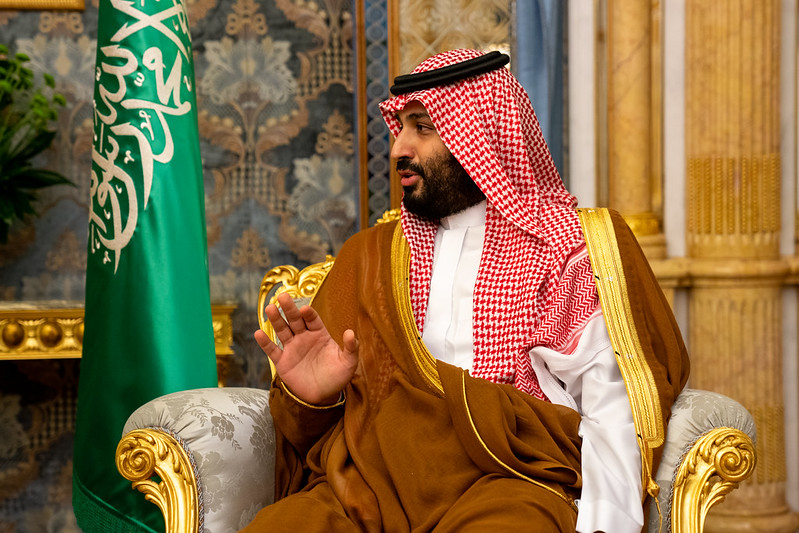
U.S. Secretary of State Michael R. Pompeo meets with Saudi Crown Prince Mohammed bin Salman in Jeddah, Saudi Arabia on September 18, 2019. [State Department photo by Ron Przysucha/ Public Domain]
Saudi Arabia said Sunday it would cut 1 million barrels of oil a day as part of a deal between OPEC and its allies after one of the most contentious production meetings in recent years amid concerns over slowing global energy demand.
Saudi Arabia said the output cut was for July and on top of previously announced curbs, which would be extended until the end of 2024. The United Arab Emirates and some other large producers also extended their previously announced cuts.
The Saudi announcement came soon after the Organization of the Petroleum Exporting Countries and its Russia-led allies said the group had agreed to stick to current production targets until the end of the year. Each member of the cartel, called OPEC+, is allotted a production quota, but sometimes members don’t hit that level.
A production cut of as much as 1 million barrels a day was on the table, delegates had said ahead of Sunday’s meeting. The broader 23-member group accounts for close to half of the world’s oil output. A cut in production was expected to prop up crude prices amid concerns that a slowing global economy would crimp energy demand.
The decision to stick to the group’s production targets came after OPEC members huddled together for hours in Vienna to hash out a deal in what turned out to be a fiery exchange, delegates said. Saudi Arabia was pushing some members to cut output but faced stiff resistance, especially from some African producers, they added.
Production plans are usually agreed upon in advance between OPEC members who quickly rubber-stamp their approval during the official meetings. This time, tensions within the group over production quotas were high. Members eventually agreed to stick to their output targets along with their Russia-led allies to break the deadlock, they said. The Saudi decision to voluntarily cut output helped get the deal over the line, delegates said.
Read more here.
